Why build a self-reflection routine? The journey to self-awareness starts with self-reflection, a powerful tool for personal growth.
Self-reflection involves inwardly examining one’s thoughts, feelings, actions, and motivations. It’s about understanding oneself and why one behaves the way one does.
This article aims to guide you through building an effective self-reflection routine, exploring its importance, benefits, and practical steps to incorporate it into your daily life.
Understanding Self-Reflection

Self-reflection is deliberately paying attention to your thoughts, emotions, and behaviors to gain insight into your personal growth.
According to Angeleena Francis, LMHC, self-reflection involves being present with yourself and focusing inward to understand your motivations and actions.
Kristin Wilson, MA, LPC, emphasizes that active self-reflection can deepen your understanding of your values and beliefs.
This practice is crucial for building self-awareness, a key component of emotional intelligence.
Self-reflection helps you recognize your strengths and areas for improvement, paving the way for personal development.
It also strengthens your self-concept, shaping how you see yourself and your role in the world.
Regular self-reflection can align one’s actions with core values, leading to more authentic and fulfilling life choices.
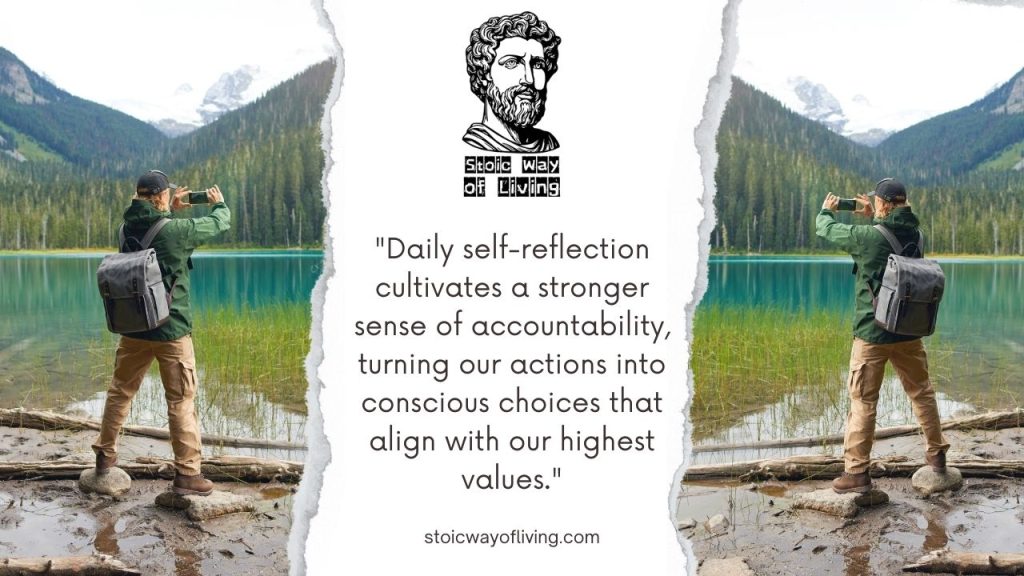
The Science Behind Self-Reflection

The benefits of self-reflection are backed by psychological research.
Studies have shown that self-reflection activates areas of the brain associated with self-awareness and emotional regulation.
This practice enhances emotional intelligence, allowing you to understand better and manage your emotions.
According to research from the American Psychological Association, self-reflection contributes to a more integrated self-concept, which is essential for mental health and well-being.
Self-reflection also helps in decision-making by clarifying values and goals. Moreover, it can reduce stress by allowing you to process and make sense of your experiences.
When you reflect on your actions and their outcomes, you gain valuable insights that can guide future behavior, helping you learn from past mistakes and successes.
This cognitive process is crucial for personal growth and continuous self-improvement.
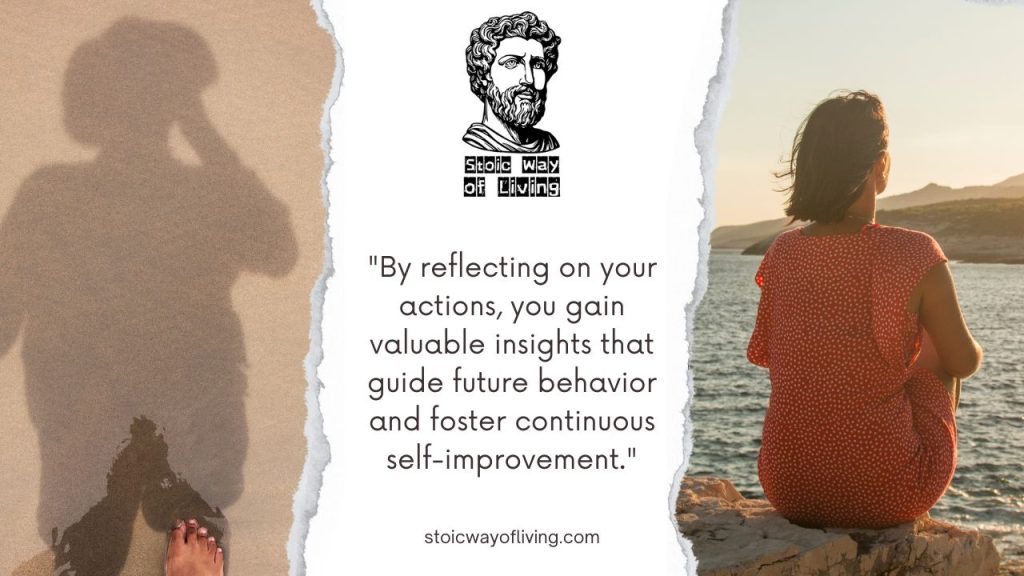
Building Your Self-Reflection Routine

Building an effective self-reflection routine involves several key steps that can help you gain deeper insights into your thoughts and behaviors.
Here are some practical steps to get you started on your self-reflection routine:
1. Preparing for Self-Reflection

Creating the right environment is essential for effective self-reflection. Start by finding a quiet, comfortable space to focus without distractions.
This could be a cozy corner in your home, a peaceful natural spot, or any place you feel at ease. Sensory input plays a significant role in setting the mood for self-reflection.
To help you relax, consider lighting a candle, listening to soft music, or drinking a warm beverage like tea.
Equip yourself with the necessary tools, such as a journal and a pen, or use digital apps designed for self-reflection. It’s also important to set aside dedicated time for this practice.
Consistency is critical, whether five minutes in the morning or half an hour before bed.
By establishing a routine, you signal to your mind that this is a time for introspection and growth.
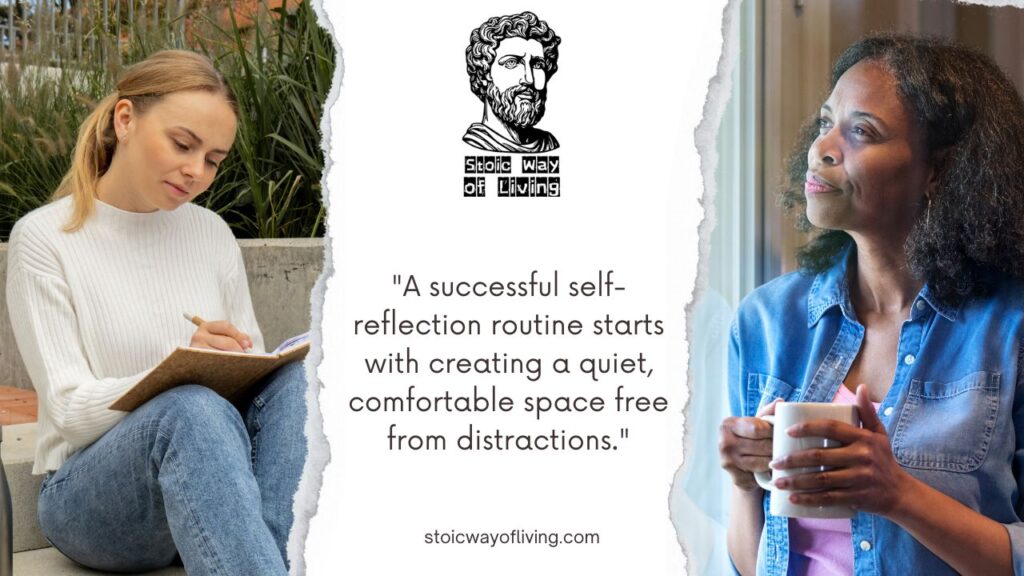
2. Start with Open-Ended Questions

Begin your self-reflection with open-ended questions that encourage introspection.
These questions should prompt you to think deeply about your experiences, feelings, and actions. Examples include:
- “What did I learn today?”
- “What could I have done differently?”
- “Am I living in alignment with my values?”
These questions help you explore various aspects of your life and identify areas for growth and improvement.
3. Keep a Journal

Journaling is one of the most effective tools for self-reflection.
Dedicate a notebook or use a digital app to document your thoughts and responses to the questions you ask yourself.
Writing down your reflections can help clarify your thoughts, track your progress, and serve as a valuable record of your personal growth.
Make journaling a regular habit by setting aside a specific time each day, whether in the morning, during lunch, or before bed.
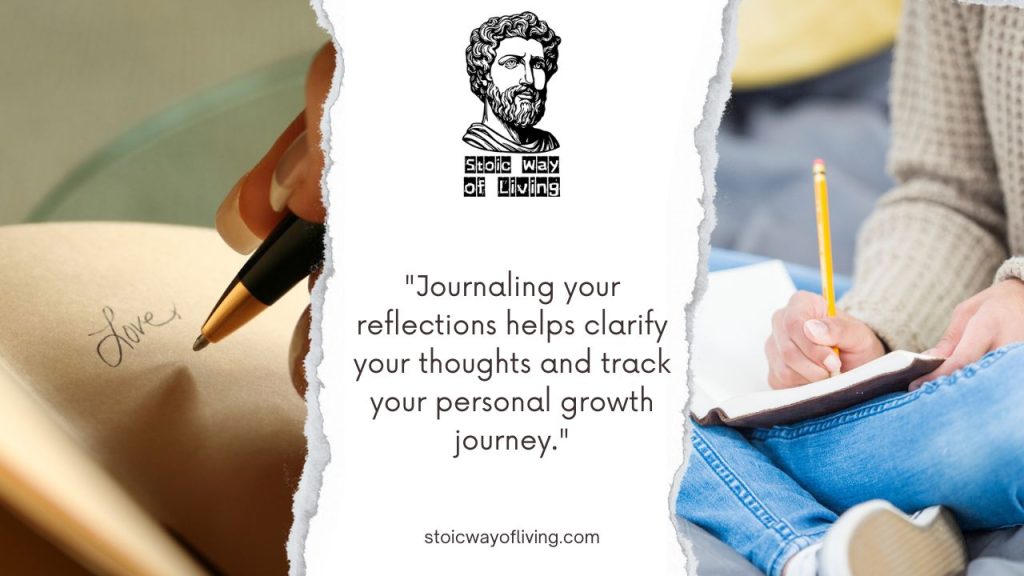
4. Practice Meditation

Meditation is a powerful practice for self-reflection.
Even a few minutes of quiet contemplation each day can help you connect with your inner self.
Find a comfortable, quiet space, close your eyes, and focus on your breath.
As thoughts arise, observe them without judgment and gently bring your attention back to breathing.
This practice helps you become more aware of your thought patterns and emotional responses.
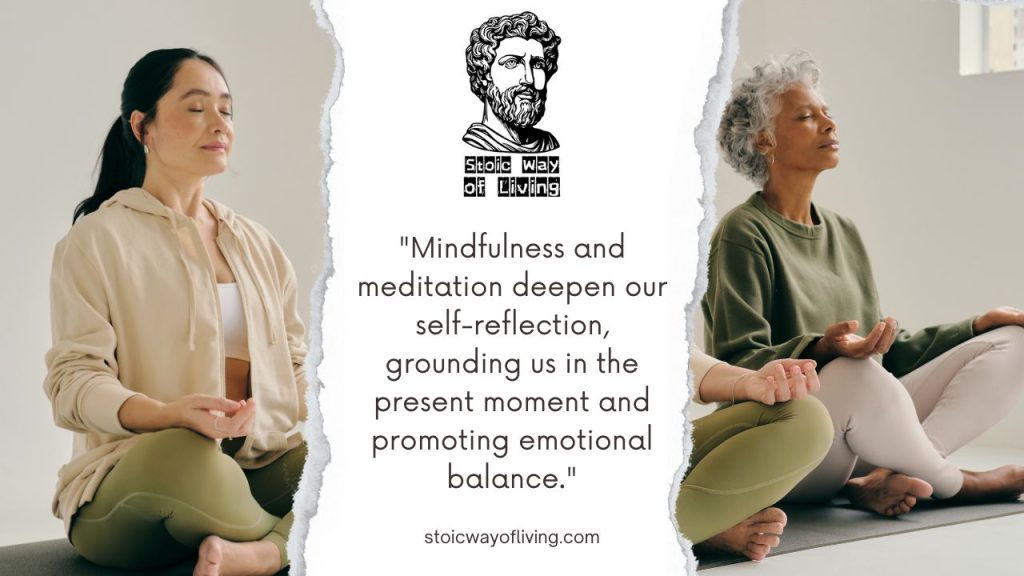
5. Create a Self-Reflection Board

A self-reflection board is a visual tool that can enhance your self-reflection practice.
Use a bulletin board or digital platform to display your goals, achievements, and areas for improvement.
Add quotes, images, and notes that inspire you.
Regularly updating your board can keep you motivated and focused on your personal development journey.
6. Integrate Self-Reflection into Your Routine

Consistency is critical to building a successful self-reflection routine.
Choose a specific time each day for self-reflection and stick to it.
This could be in the morning to set the tone for the day, during a lunch break to check in with yourself, or in the evening to review the day’s events.
The important thing is to make it a regular part of your schedule.
7. Use Prompts and Templates

Using prompts and templates can help structure your self-reflection sessions.
Consider incorporating prompts like:
- “Today, I am grateful for…”
- “One thing I did well today was…”
- “A challenge I faced and how I overcame it…”
These prompts can guide your reflections and ensure you cover various aspects of your personal and professional life.
8. Be Kind to Yourself

Approach self-reflection with a mindset of self-compassion and non-judgment.
Recognize that everyone has areas for improvement and that self-reflection is a tool for growth, not self-criticism.
If you dwell on negative thoughts, gently redirect your focus to constructive insights and actionable steps for improvement.
Incorporating Self-Reflection into Daily Life

Integrating self-reflection into your daily routine can transform how you understand yourself and navigate life’s challenges.
Here’s how you can seamlessly incorporate self-reflection into your everyday activities:
1. Dedicate Specific Times for Self-Reflection
The key to successful self-reflection is consistency.
Dedicate specific times each day for this practice.
Mornings are ideal for setting intentions and preparing for the day, while evenings offer a chance to reflect on the day’s events and gain insights.
Choose a time that fits your schedule and stick to it, whether it’s five minutes with your morning coffee or a more extended session before bed.
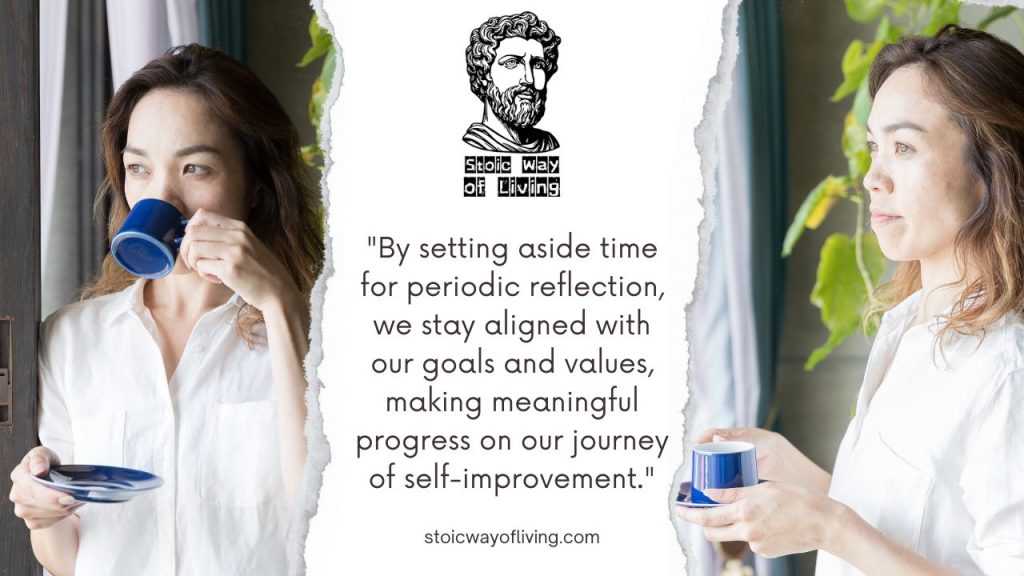
2. Choose a Quiet Spot
Finding a quiet, comfortable space is crucial for effective self-reflection.
This could be a cozy corner in your home, a peaceful natural spot, or even a quiet room at work.
The environment should be free from distractions, allowing you to focus inwardly.
A calm and serene setting can enhance your ability to connect with your thoughts and emotions.
3. Pay Attention to Your Senses
Sensory input can significantly influence the mood of self-reflection.
To create a relaxing atmosphere, consider lighting a candle, playing soft music, or having a warm beverage like tea.
Engaging your senses can help you feel more grounded and present during self-reflection.
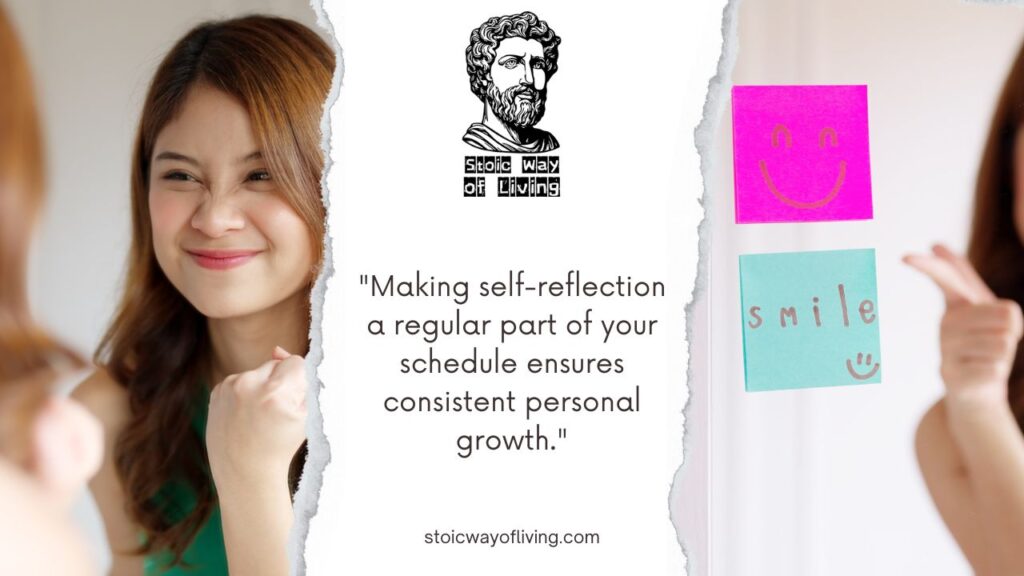
4. Use Real-Life Examples
Real-life examples can inspire and motivate you to incorporate self-reflection into your routine.
For instance, a busy professional might use their commute to mentally review their day and set goals for the next one.
A parent might reflect on their interactions with their children during a quiet moment in the evening.
Seeing how others integrate self-reflection into their lives can provide practical ideas for your routine.
5. Adapt to Changing Schedules
Flexibility is essential when integrating self-reflection into daily life.
Your schedule may change, but your commitment to self-reflection should remain.
Try reflecting during your lunch break or before bed if mornings become too hectic.
The key is to remain adaptable and ensure that self-reflection remains a consistent part of your routine, regardless of how your day unfolds.
6. Combine Self-Reflection with Other Activities
Self-reflection doesn’t always have to be a standalone activity.
You can integrate it with other daily activities. For example, you might reflect while walking, exercising, or cooking.
These activities can provide a conducive environment for introspection, allowing you to reflect on your thoughts and feelings naturally.
7. Create Visual Reminders
Visual reminders can help you stay committed to your self-reflection practice.
Use a planner, calendar, or digital app to schedule and track self-reflection sessions.
Setting reminders can ensure you make time for this critical practice amidst your busy day.
8. Seek Support and Accountability
Sharing your self-reflection goals with a trusted friend or joining a community focused on personal growth can provide additional support and accountability.
Discussing your reflections with others can offer new perspectives and motivate you to continue your practice.
Overcoming Challenges in Self-Reflection

While self-reflection is a valuable practice, it can sometimes lead to rumination, self-criticism, and negative self-talk.
It’s essential to approach self-reflection with neutrality and nonjudgment. Be aware of the difference between constructive self-reflection and harmful rumination.
If you find yourself getting stuck in negative thought patterns, practice self-compassion.
Treat yourself with the kindness you would offer a friend in a similar situation. Focus on actionable insights rather than dwelling on past mistakes.
If negative self-talk persists, consider seeking support from a trusted individual or a mental health professional. They can provide guidance and help you navigate challenging emotions.
Remember, self-reflection should be a positive, growth-oriented practice that helps you progress.
See also: Practicing Gratitude Through Journaling – All You Need to Do!
Conclusion
Building a self-reflection routine is a transformative journey that fosters self-awareness, improves decision-making, and promotes personal growth.
By dedicating time to reflect on your thoughts, feelings, and actions, you can gain valuable insights that lead to a more intentional and fulfilling life.
The key to successful self-reflection lies in consistency, creating the right environment, and approaching the practice with self-compassion.
If you’re looking for a practical tool to support your self-reflection journey, consider the “Ultimate Daily Journal & Planner” by Aleart. This undated self-care journal fosters gratitude, goal-setting, and overall mental health with daily prompts that take less than six minutes to complete. Check it out on Amazon!


